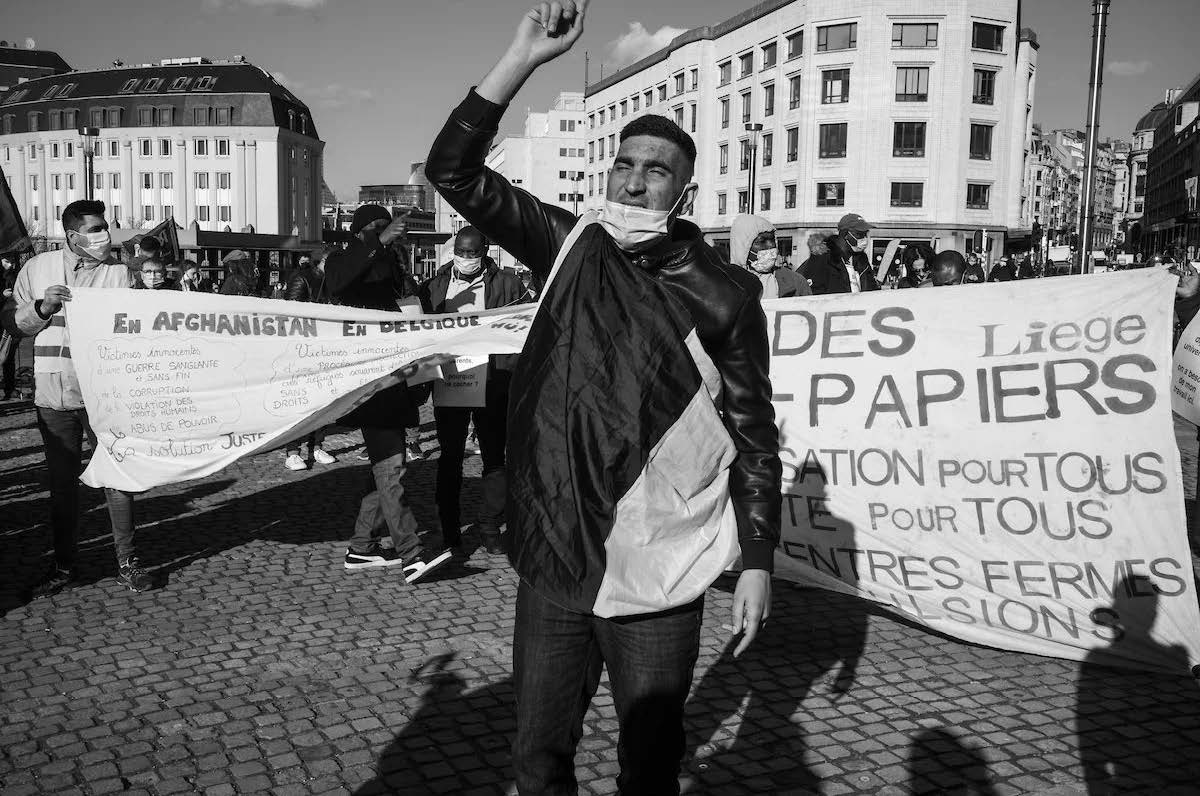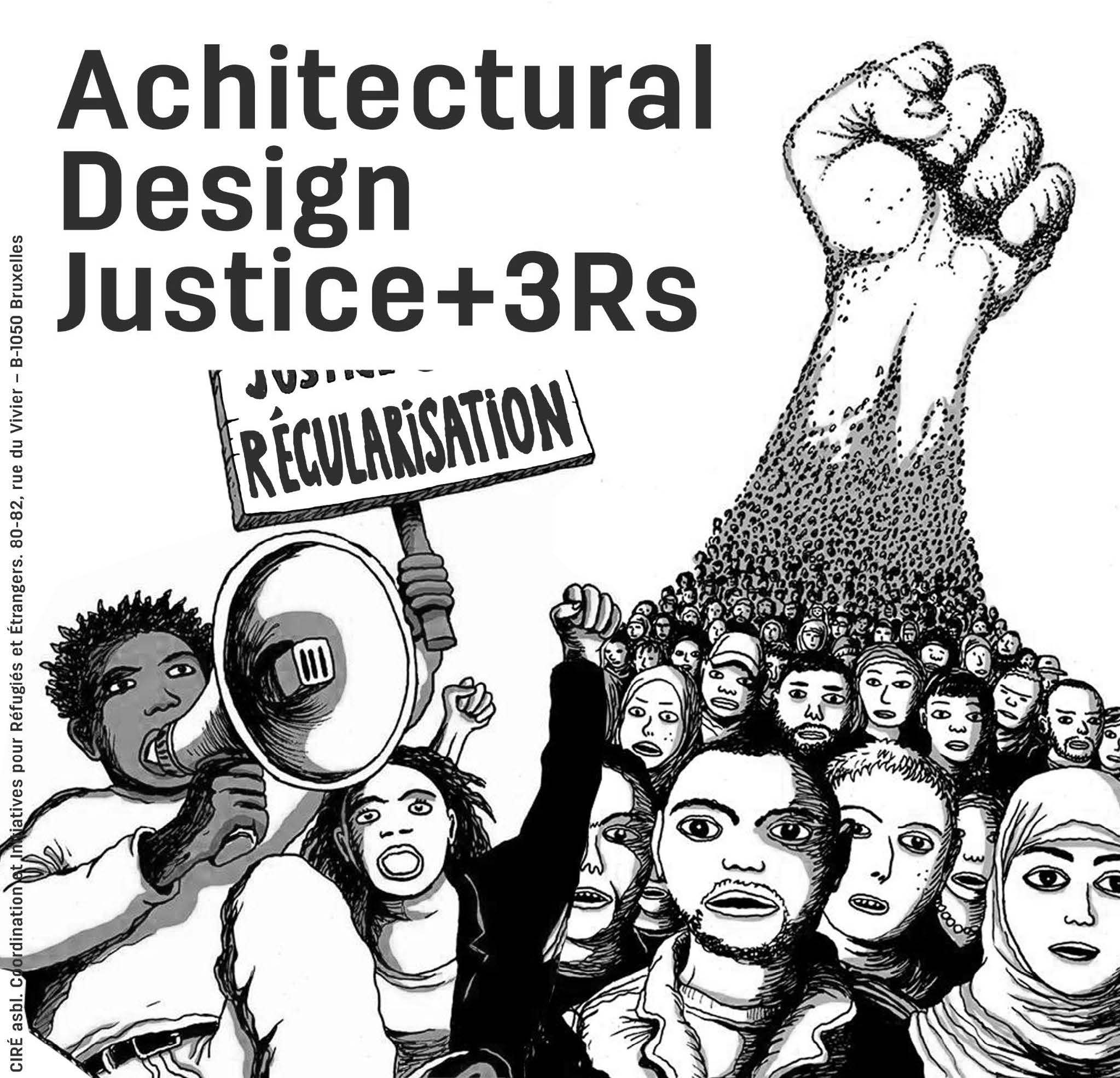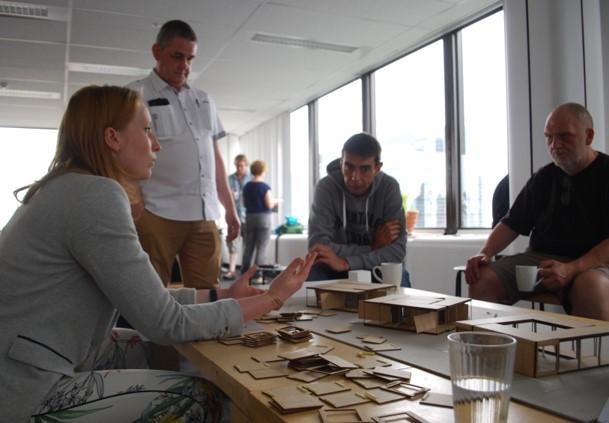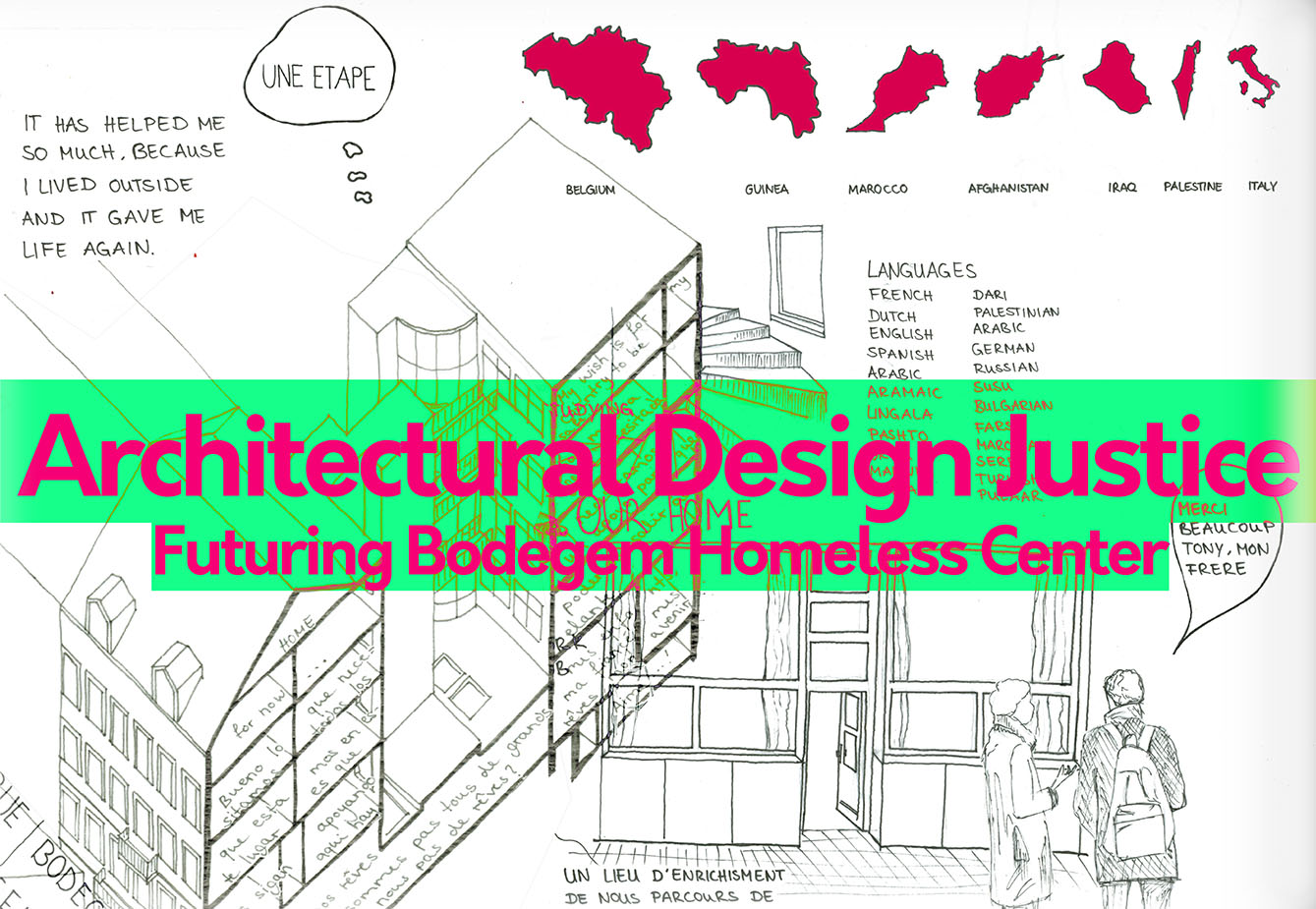Architecture Design Justice Studio (ADJ Studio)
Envisioning the Future of Brussels Bodegem Homeless Center
Drs Rosaura Romero, Prof. dr. Burak Pak
21-22, semester 1
According to a recent brief by the United Nations, we are experiencing the amplification of the inequalities within and across countries which are pushing individuals and families into poverty. Across the globe and particularly in Brussels, decades of neoliberal policies resulted in the commodification and marketisation of the housing sector. While a parade of governments failed to provide decent accommodation to the citizens, the constitutionally guaranteed “right to housing” has gradually evaporated into a mirage that is strived for but never reached. Added on top of this, the financial crisis of 2008 and the refugee influx in the last decade gave rise to an increasing number of vulnerable citizens in need of affordable housing.

BELGIUM, Brussels. 26/02/2021: About 200 “Sans Papiers” demonstrate to obtain a regularisation of their situation.
Architectural Design Justice Studio
ADJ Studio is an experimental initiative on Architectural Design Justice; an approach that views and uses the architecture practice as a political platform to capacitate vulnerable communities to overcome systematic oppressions by amplifying their spatial autonomy through an inclusive design process. Design Justice practices aim to counterbalance the social innovation and spatial professional-centered narratives that are reinforced by the neoliberal and individualistic system architects operate in. (Fitz & Krasny, 2019). Prioritizing and shifting advantages to those who are currently systematically disadvantaged within the matrix of domination (Costanza-Chock, 2020), the overarching objective of the Studio is to engage students into critical spatial practice taking a real-world ADJ case through Service-learning, an educational method that aims to immerse the architect-student into a living laboratory with real stakeholders, users, applicable scenarios, and projects addressing current socio-spatial challenges.

The studio’s focus will be on futuring the Bodegem Center, currently an all-male shelter undergoing an architectural transformation. The students will learn about homelessness in Brussels and partake in critical reflections on the connection between architectural design and the urban injustices homeless people experience. They will get immersed into the local context through the established living lab at Bodegem, integrated into an ongoing Ph.D. research and an EC Creative Europe project “A-place”. The students will be able to interact with the site and its users in order to understand social inequalities embedded within the spaces and create a more just vision for the future of the shelter and its surrounding spaces.
A parallel aim of this studio is to envision alternative modalities of appropriation of underused collective spaces for enabling design justice. Together with the local actors, we will reframe spaces in and around the Bodegem Center in Brussels as ‘places of negotiation’ and transform these into projects through which questions on the city are raised, a place where experimentation and innovation take place.

A photo from a former Design Studio living lab including the houseless inhabitants in the design process: Student: Julie Charlot interacting with the future inhabitants
The sites selected for the studio are; The Brussels Bodegem Shelter located at Rue du Bodegem 27, an
abandoned parcel next door, the public spaces surrounding the shelter, and Anneseens metro station.

Bodeghem Shelter, and Square Anneessens, Brussels.
The project partners are; KU Leuven, The Salvation Army, Architekt-nburo, Alt-shift Group, and A-Place
partners from the EC Creative Europe project “Linking places through networked artistic practices” Rosie
Romero, Researcher (KU Leuven) Burak Pak, Supervisor (KU Leuven).

We will provide a positive atmosphere of solidarity and service-learning, together with a database of
theoretical readings, inspiring cases and drawings of the current state of the Bodeghem shelter and
Metro station. An introduction to the site, as well as lectures on ADJ, and former findings, and potential
themes.

Activities planned beyond desk crits include; site visit(s), inspiring interactions with local actors through
the living lab, and an on-site hands-on creative placemaking workshop, inclusive and constructive review
moments with relevant stakeholders.

Students and inhabitants learning about urban gardens and co-building a planter at Bodegem Center
Final results expected from students:
Design Futuring places design in a political frame wherein it is remade in order to become the force for
change that it needs to be (Fry, 2009). The focus of change is upon the processes of redirection rather
than of form rethinking design as a ‘redirective practice’ changing how design practice is understood,
developed and deployed. Futuring involves experimentation into design strategies to enable change and
experimental socio-spatial interventions to draw realistic but imaginative future directions. From this
lens, the outcomes of the ADJ studio will be futuring the Bodeghem Homeless Center architectural
project, through strategies and socially and spatially innovative interventions at different scales which
address certain dimensions of ADJ identified by the students.
References
Costanza-Chock, S. (2020). Design justice. MIT Press.
Fitz, A. (2019). Critical Care : Architecture and Urbanism for a Broken Planet. MIT Press.
Fry, T. (2009). Design futuring: Sustainability, Ethics, and New Practice. Berg.
Romero, R. (Researcher), Pak B. (Supervisor) Architectural Design Justice, Ongoing funded Ph.D. Project,
KU Leuven Faculty of Architecture.
A-place project: A-PLACE EC Creative Europe Project, Linking places through networked artistic practices,
Rosaura Romero, Researcher (KU Leuven) Burak Pak, Supervisor (KU Leuven)
https://www.kuleuven.be/onderzoek/portaal/#/projecten/3E200135
Cover image background: Dialectogram by student Veronica Marie Volz, output of elective course: Alternative Practices for Urban Inclusion 2021.
Dialectogram above by student Veronica Marie Volz
Studio description as pdf.

